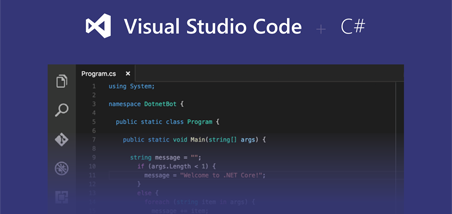Querying Data with Transact-SQL
Microsoft EğitimleriBu eğitim,
Transact-SQL hakkında katılımcılara genel bilgiler vermek üzere tasarlanmıştır.
Bu eğitimde şu konular yer alır: SQL sorguları yazma, T-SQL unsurları, JOINs
sorgulama, verileri filtreleme ve sınıflandırma, SQL Server 2016 veri türleri,
T-SQL DML, yerleşik işlevler, veri gruplandırma ve toplama, alt sorgular ve son
olarak operatörleri
ayarlama.
Bu
eğitimde neler öğreneceksiniz?
• SQL Server 2016’ın
ana bileşenleri ve yetenekleri
• T-SQL, kümeler ve
tahmin mantığı
• SELECT ifadesi ile
tek bir tabloya yazma
• SELECT ifadesi ile
birden fazla tabloya yazma
• Filtreleme ve sınıflandırma
ile SELECT ifadeleri yazma
• SQL Server’ın veri
türlerini nasıl kullandığı
• DML ifadeleri yazma
• Yerleşik işlevleri
kullanan sorgular yazma
• Veri toplayan
sorgular yazma
• Alt sorgular yazma
• Görünümler
ve tablo değerli işlevler oluşturma ve uygulama
• Sorgu sonuçlarını
birleştirmek için küme operatörlerini
kullanma
•
Pencere sıralaması, ofset ve
toplama işlevlerini kullanan sorgular yazma
• Pivot, Unpivot ve
Cube uygulayarak verileri dönüştürme
• Depolanmış
prosedürler oluşturma ve uygulama
• Değişkenler, koşullar
ve döngüler
gibi programlama yapılarını T-SQL koduna ekleme
Eğitim İçeriği
Introduction to Microsoft SQL Server 2016
•
The Basic
Architecture of SQL Server
•
SQL Server Editions and
Versions
•
Getting Started with
SQL Server Management Studio
Introduction to T-SQL Querying
•
Introducing T-SQL
•
Sets
• Predicate Logic
•
Logical Order of
Operations in SELECT statements
Writing SELECT Queries
•
Writing Simple SELECT
Statements
•
Eliminating
Duplicates with DISTINCT
•
Using Column and
Table Aliases
•
Writing Simple CASE
Expressions
Querying Multiple Tables
•
Joins
•
Querying with Inner
Joins
•
Querying with Outer
Joins
•
Querying with Cross
Joins and Self Joins
Sorting and Filtering Data
•
Sorting Data
•
Filtering Data with
Predicates
•
Filtering with the
TOP and OFFSET-FETCH Options
•
Working with Unknown
Values
Working with SQL Server 2016 Data Types
•
Introducing SQL
Server 2016 Data Types
•
Working with
Character Data
•
Working with Date and
Time Data
Using DML to Modify Data
•
Adding Data to Tables
•
Modifying and
Removing Data
•
Generating automatic
column values
Using Built-In Functions
•
Writing Queries with
Built-In Functions
•
Using Conversion
Functions
•
Using Logical
Functions
•
Using Functions to
Work with NULL
Grouping and Aggregating Data
•
Using Aggregate
Functions
•
Using the GROUP BY
Clause
•
Filtering Groups with
HAVING
Using Subqueries
•
Writing
Self-Contained Subqueries
•
Writing Correlated
Subqueries
•
Using the EXISTS
Predicate with Subqueries
Using Table Expressions
•
Using Views
•
Using Inline
Table-Valued Functions
•
Using Derived Tables
•
Using Common Table
Expressions
Using Set Operators
•
Writing Queries with
the UNION Operator
•
Using EXCEPT and
INTERSECT
•
Using APPLY
Using Windows Ranking, Offset, and Aggregate Functions
•
Creating Windows with
OVER
•
Exploring Window
Functions
Pivoting and Grouping Sets
•
Writing Queries with
PIVOT and UNPIVOT
•
Working with Grouping
Sets
Executing Stored Procedures
•
Querying Data with
Stored Procedures
•
Passing Parameters to
Stored procedures
•
Creating Simple
Stored Procedures
•
Working with Dynamic
SQL
Programming with T-SQL
•
T-SQL Programming
Elements
•
Controlling Program
Flow
Implementing Error
Handling
•
Implementing T-SQL
Error Handling
•
Implementing
Structured Exception Handling
Implementing Transactions
•
Transactions and the
Database Engines
•
Controlling
Transactions
Ön Koşullar
Herhangi bir ön koşul yoktur.






